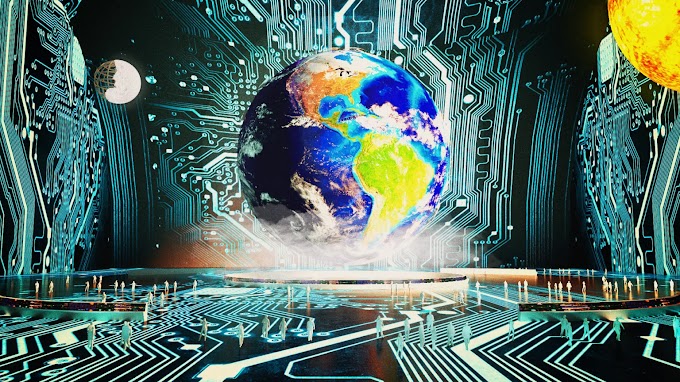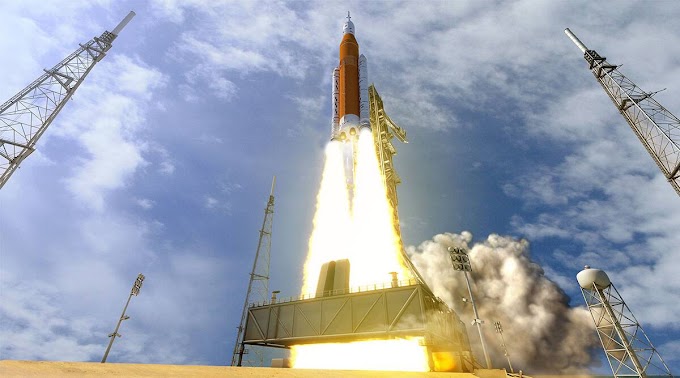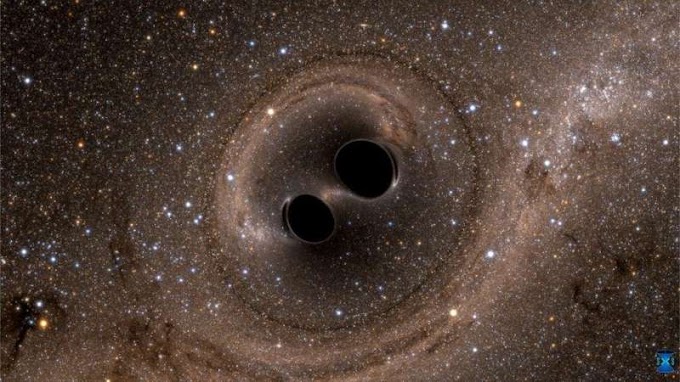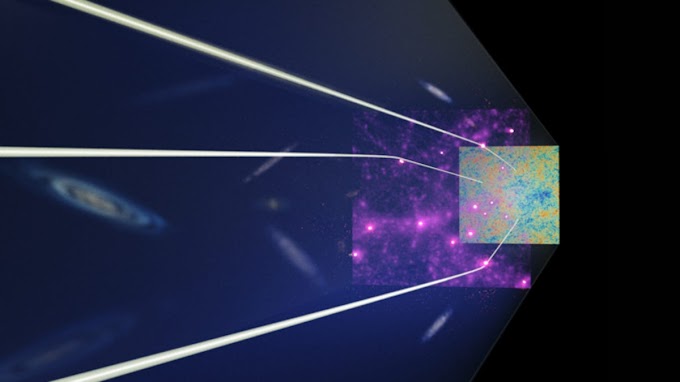Simulation theory is a fascinating concept that has captured the imagination of people from all walks of life. At its core, simulation theory is the idea that our reality may be nothing more than a sophisticated simulation, created by a more advanced civilization or even a super intelligent AI. This theory has gained popularity in recent years due to its appearances in popular culture, as well as the philosophical and scientific evidence that supports it.
Whether you are a scientist, philosopher, or simply a curious individual, simulation theory is an exciting topic that is worth exploring. Join us as we delve deeper into this fascinating theory and discover what it means for our understanding of reality and our place in the universe.
🔰 The Simulation Argument
The Simulation Argument is a philosophical theory that was proposed by Nick Bostrom, a Swedish philosopher. It suggests that there is a high probability that our reality is a computer simulation created by a more advanced civilization.
Bostrom's argument is based on the idea that if it is possible for a civilization to create advanced simulations, it is likely that they would create many such simulations. This means that the number of simulated realities would be much greater than the number of actual physical realities.
Bostrom suggests that if we assume that it is possible for a civilization to create simulations that are indistinguishable from reality, it is likely that we are living in a simulation rather than in the physical reality. This is because the number of simulated realities would vastly outnumber the number of physical realities.
The Simulation Argument is often discussed in the context of virtual reality and computer simulations. It raises important questions about the nature of reality and the possibility of multiple levels of simulated realities.
While the Simulation Argument is just a philosophical theory and there is no concrete evidence to support it, it has become a popular topic of discussion among scientists, philosophers, and futurists. It has even been featured in popular culture, such as in the movie "The Matrix."
Overall, the Simulation Argument challenges our perception of reality and raises important questions about the nature of consciousness and our place in the universe.
🔰 The Matrix
The movie follows the story of a hacker named Neo, who is awakened to the truth about his reality by a group of rebels fighting against the machines. Through his journey, Neo discovers that his entire life has been a lie, and he is actually living in a simulated reality controlled by machines.
The Matrix has become a cultural touchstone for simulation theory because of its portrayal of a simulated reality and the philosophical questions it raises about the nature of reality and consciousness. It has inspired countless discussions and debates among scientists, philosophers, and everyday people.
The movie's depiction of a simulated reality raises important questions about the possibility of multiple levels of simulations and the nature of free will in a simulated world. The Matrix has also inspired other movies, TV shows, and books that explore similar themes, such as the concept of a simulated reality and the implications of living in one.
Overall, The Matrix is an important representation of simulation theory that has sparked a cultural fascination with the idea of a simulated reality. It continues to inspire discussions and debates about the nature of reality, consciousness, and the future of technology.
🔰 Evidence Supporting Simulation Theory
Simulation Theory is the idea that our reality may be a simulation created by a more advanced civilization or even a super intelligent AI. While there is no concrete evidence to prove that this theory is true, there are several philosophical and scientific arguments that lend credence to the idea.
One of the key pieces of evidence supporting Simulation Theory is the rapid advancement of technology. As technology continues to progress at an exponential rate, it is becoming increasingly difficult to distinguish between reality and virtual reality. Virtual reality simulations are already becoming more realistic, and it's possible that in the future, simulations could be indistinguishable from reality.
Another piece of evidence supporting Simulation Theory is the fact that the universe appears to operate under a set of mathematical laws. Some scientists and philosophers argue that these mathematical laws are similar to the ones used to create computer simulations. This suggests that the universe may be a simulation created by a more advanced civilization that has a greater understanding of mathematics and computer science.
There are also philosophical arguments that support Simulation Theory. For example, the Simulation Argument proposed by Nick Bostrom suggests that if it is possible to create a realistic simulation of reality, then it is likely that we are living in a simulation. This is because the number of simulated realities would vastly outnumber the number of physical realities.
Additionally, the concept of quantum mechanics has led some physicists to propose that the universe may be a simulation. This is because quantum mechanics suggests that particles do not have definite properties until they are observed. This is similar to the way that objects in a simulation do not exist until they are rendered.
While there is no concrete proof that our reality is a simulation, these pieces of evidence suggest that it is possible. Simulation Theory challenges our perception of reality and raises important questions about the nature of consciousness and the role of technology in shaping our understanding of the world. As technology continues to advance, it is possible that we may one day discover whether or not our reality is a simulation.
🔰 The Concept Of Base Reality
The concept of "base reality" is an important idea in Simulation Theory. It refers to the physical reality from which the simulation is being run. In other words, if our reality is a simulation, there must be a "base reality" in which the simulation is being run.
According to Simulation Theory, the civilization or entity running the simulation would be more advanced than us and would have the ability to create a simulated reality that is indistinguishable from the physical reality. This means that the beings living within the simulation, such as ourselves, would not be able to tell the difference between the simulation and the physical reality.
However, the concept of base reality raises important questions about the nature of reality and the possibility of multiple levels of simulations. If our reality is a simulation, it is possible that the civilization running the simulation is also living within a simulation. This means that there could be multiple levels of simulated realities, each created by a more advanced civilization or entity.
The concept of base reality also raises questions about the nature of consciousness and the role of technology in shaping our understanding of the world. If our reality is a simulation, it is possible that our consciousness and free will are also part of the simulation. This raises important ethical questions about the role of technology in shaping our understanding of the world and the implications of living in a simulated reality.
Overall, the concept of base reality is an important aspect of Simulation Theory that raises important questions about the nature of reality, consciousness, and the role of technology in shaping our understanding of the world.
🔰 The Simulation Hypothesis
The Simulation Hypothesis, also known as Simulation Theory, is the idea that our reality is a computer simulation created by a more advanced civilization or even a super intelligent AI. This hypothesis was popularized by philosopher Nick Bostrom in his 2003 paper "Are You Living in a Computer Simulation?"
According to the Simulation Hypothesis, the civilization or entity running the simulation would be so advanced that they would have the ability to create a simulated reality that is indistinguishable from the physical reality. The beings living within the simulation, such as ourselves, would not be able to tell the difference between the simulation and the physical reality.
There are several philosophical and scientific arguments that support the Simulation Hypothesis. One of the key arguments is the rapid advancement of technology. As technology continues to progress at an exponential rate, it is becoming increasingly difficult to distinguish between reality and virtual reality. This suggests that it is possible to create a realistic simulation of reality.
Another argument supporting the Simulation Hypothesis is the fact that the universe appears to operate under a set of mathematical laws. Some scientists and philosophers argue that these mathematical laws are similar to the ones used to create computer simulations. This suggests that the universe may be a simulation created by a more advanced civilization that has a greater understanding of mathematics and computer science.
The Simulation Hypothesis has also been supported by the idea of quantum mechanics. Quantum mechanics suggests that particles do not have definite properties until they are observed. This is similar to the way that objects in a simulation do not exist until they are rendered. Some physicists have proposed that this suggests that the universe may be a simulation.
While there is no concrete proof that our reality is a simulation, the Simulation Hypothesis challenges our perception of reality and raises important questions about the nature of consciousness and the role of technology in shaping our understanding of the world. As technology continues to advance, it is possible that we may one day discover whether or not our reality is a simulation.
In conclusion, the Simulation Hypothesis is a fascinating and thought-provoking concept that challenges our understanding of reality. While there is currently no way to definitively prove whether or not our reality is a simulation, the philosophical and scientific arguments supporting this hypothesis suggest that it is possible.
🔰 The Implications Of Living In A Simulation
The implications of living in a simulation, as proposed by Simulation Theory, are vast and profound. If our reality is indeed a simulation, it would mean that our understanding of the world is fundamentally flawed and that our experiences and perceptions may not be based in reality.
One of the key implications of living in a simulation is that the laws of physics and nature that we have come to accept as fundamental may not be the ultimate truth. The civilization or entity running the simulation could have different laws of physics that govern the simulated reality. This means that some of the phenomena we observe in our reality may be artifacts of the simulation rather than real physical processes.
Another implication of living in a simulation is that the concept of free will may be an illusion. If our consciousness and free will are part of the simulation, it means that our thoughts, emotions, and decisions may be predetermined by the simulation. This raises important ethical questions about the role of technology in shaping our understanding of the world and the implications of living in a simulated reality.
Moreover, if we are living in a simulation, it is possible that there could be glitches or anomalies in the simulation that we could potentially exploit. This raises the possibility of creating our own simulations within the simulation, which could lead to a recursive loop of simulated realities.
Finally, the implications of living in a simulation also raise important questions about the nature of reality and the purpose of existence. If our reality is a simulation, it is possible that the civilization or entity running the simulation has a specific purpose or goal in mind. This means that our existence may not be entirely random, but rather part of a larger plan or experiment.
Overall, the implications of living in a simulation, as proposed by Simulation Theory, challenge our understanding of reality and raise important philosophical and ethical questions about the nature of consciousness, free will, and the purpose of existence. While there is no way to definitively prove whether or not our reality is a simulation, contemplating these implications can lead to a deeper understanding of our place in the universe and the nature of reality itself.
🔰 The Ethics Of Simulation Theory
The ethics of Simulation Theory are a complex and controversial topic that raises important questions about the role of technology in shaping our understanding of the world and the implications of living in a simulated reality.
One of the key ethical concerns raised by Simulation Theory is the concept of consent. If our reality is a simulation, it means that we are not living in a truly autonomous world, but rather one that is controlled by the civilization or entity running the simulation. This raises questions about the ethical implications of creating a simulation without the consent of the beings living within it.
Another ethical concern is the potential for exploitation. If we are living in a simulation, it is possible that there could be glitches or anomalies in the simulation that we could potentially exploit. This raises questions about the ethical implications of using knowledge gained from the simulation to manipulate or control the simulated reality.
Moreover, the idea of living in a simulated reality challenges our understanding of morality and the concept of good and evil. If our reality is a simulation, it is possible that the civilization or entity running the simulation has a specific purpose or goal in mind. This means that our actions and decisions may be judged based on a different set of moral standards than we currently accept.
Furthermore, the concept of living in a simulation raises important questions about the nature of consciousness and the role of technology in shaping our understanding of the world. If our consciousness is part of the simulation, it means that our thoughts, emotions, and decisions may be predetermined by the simulation. This raises questions about the ethical implications of manipulating or controlling consciousness through technology.
In conclusion, the ethics of Simulation Theory are a complex and controversial topic that challenge our understanding of reality and raise important questions about the role of technology in shaping our understanding of the world. As technology continues to advance, it is important that we consider the ethical implications of living in a simulated reality and work to ensure that our actions and decisions are guided by a commitment to morality, consent, and respect for all forms of consciousness.
🔰 Criticisms Of Simulation Theory
Like any scientific or philosophical theory, Simulation Theory has been subject to a number of criticisms and challenges. Here are some of the most commonly cited criticisms:
- Lack of Empirical Evidence : One of the main criticisms of Simulation Theory is the lack of empirical evidence to support it. While there are some compelling arguments and thought experiments that support the theory, there is currently no concrete evidence to prove or disprove the idea that our reality is a simulation.
- Occam's Razor : Another criticism of Simulation Theory is that it violates Occam's Razor, which states that the simplest explanation is usually the correct one. The idea of living in a simulation introduces a level of complexity that is not necessary to explain our reality.
- Logic Paradoxes : Some critics argue that the concept of a simulated reality is logically paradoxical. For example, if we are living in a simulation, it is possible that the civilization or entity running the simulation is also part of a simulation, leading to an infinite regress of simulated realities.
- Scientific Feasibility : Critics have also raised questions about the scientific feasibility of creating a simulation that could replicate the complexity and richness of our reality. The computational power and technology required to create such a simulation may be beyond our current capabilities.
- Alternative Explanations : Finally, some critics argue that there are alternative explanations for the phenomena that Simulation Theory seeks to explain, such as the anthropic principle, which states that the observed universe is necessarily conducive to the existence of conscious life.
In conclusion, while Simulation Theory is an intriguing and thought-provoking idea, it is not without its criticisms and challenges. The lack of empirical evidence, violation of Occam's Razor, logical paradoxes, scientific feasibility, and alternative explanations are all important considerations that must be taken into account when evaluating the theory. As with any scientific or philosophical theory, it is important to approach Simulation Theory with a critical and open-minded perspective.
🔰 The Future Of Simulation Theory
The future of Simulation Theory is a topic of great interest and speculation among scientists, philosophers, and futurists. As technology continues to advance at an exponential rate, it is possible that we may soon be able to create simulations that are indistinguishable from reality. This raises the question of whether we are living in a simulation or if we will create our own simulated realities in the future.
One potential future of Simulation Theory is the development of virtual reality technologies that allow us to fully immerse ourselves in simulated environments. As these technologies continue to improve, it is possible that we may begin to spend more and more of our time in virtual environments, blurring the line between reality and simulation.
Another potential future of Simulation Theory is the emergence of artificial intelligence. As AI technologies continue to advance, it is possible that we may one day create AI beings that are capable of creating their own simulations. This raises the question of whether we could be living in a simulation created by an advanced AI civilization.
Finally, the future of Simulation Theory may also be influenced by advancements in quantum computing and physics. Some theorists have suggested that the nature of quantum reality suggests that our reality is a simulation, or that the universe itself may be a kind of simulation. As our understanding of quantum physics continues to evolve, it is possible that we may gain new insights into the nature of reality and the possibility of simulation.
In conclusion, the future of Simulation Theory is a topic of great interest and speculation. As technology continues to advance, we may soon be able to create simulations that are indistinguishable from reality, raising important questions about the nature of our existence and the role of technology in shaping our understanding of the world. It is important that we approach these questions with an open-minded and critical perspective, and continue to explore the potential implications of Simulation Theory on our understanding of reality.
🔰Conclusion Of Simulation Theory
Simulation Theory is a fascinating and thought-provoking idea that has captured the attention of scientists, philosophers, and futurists. At its core, Simulation Theory proposes that our reality is a computer-generated simulation created by an advanced civilization or entity.
While there is currently no concrete evidence to support Simulation Theory, there are a number of compelling arguments and thought experiments that suggest it may be possible. These include the simulation argument, the concept of base reality, and the idea that the universe itself may be a kind of simulation.
However, like any scientific or philosophical theory, Simulation Theory is not without its criticisms and challenges. These include the lack of empirical evidence, violation of Occam's Razor, logical paradoxes, scientific feasibility, and alternative explanations.
Despite these challenges, Simulation Theory continues to inspire new lines of inquiry and speculation. As technology continues to advance at an exponential rate, it is possible that we may soon be able to create simulations that are indistinguishable from reality, raising important questions about the nature of our existence and the role of technology in shaping our understanding of the world.
Ultimately, whether or not our reality is a simulation may be impossible to prove or disprove. However, the exploration of Simulation Theory offers a valuable opportunity to think critically and imaginatively about the nature of reality, the potential implications of emerging technologies, and the mysteries of the universe.











